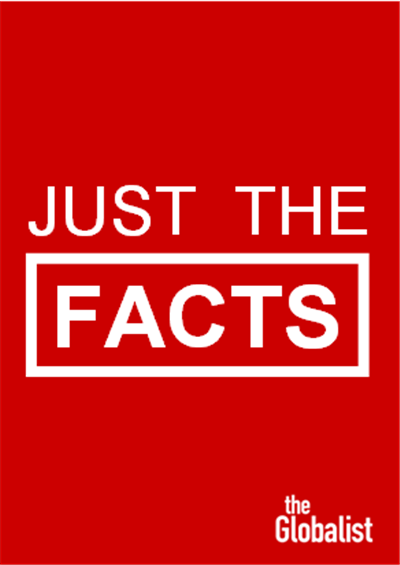UK: Corbyn’s Important U-Turn on Brexit
Why is the UK’s Jeremy Corbyn now in favor of a Customs Union with the EU?
February 27, 2018
Jeremy Corbyn, the Labour Party leader, is coming around on the Brexit issue. Until now, there has been huge criticism within Labour that up to now party policy on Brexit has been identical to Mrs. May’s.
That is changing now. Corbyn now favors a customs union with the EU, arguing that geographic vicinity and the power of sensible economics leave the UK no other choice. Corbyn is thus creating clear blue water between Labour and May on Customs Union.
To nobody’s surprise, the Brexiteers now accuse Corbyn of ignoring voters’ wishes on Brexit.
To make his move more palatable to Labour’s “Leave” camp, Corbyn is expected to promise pumping £8 billion a year of “Brexit savings” into UK jobs and public services.
It remains to be seen what savings there really are. They could be as fanciful – i.e., non-existent – like Boris Johnson’s infamous claim to pump £350 into the NHS.
An easy political choice
But Corbyn knows that he does not really need to worry much about delivering on that promise. There isn’t going to be another nationwide election until 2022, so making wild promises on tax and spending for what might happen in four years’ time is an easy political score.
Corbyn’s main mission right now is to walk on a tightrope between the fact that many, many voters in heartland Labour constituencies voted for Brexit — while all the young voters and those in key cities like London voted Remain.
Corbyn’s shift is especially significant ahead of big local government elections which are coming up on May 3rd. In London, Labour can win three major borough councils that have long been Tory-controlled.
Granted, London is overwhelmingly pro-Remain voters, young voters, liberal professionals, start-up people as well as one million EU citizens who have the right to vote in local elections.
Nevertheless, those London results would not just be another big defeat for Mrs. May, after the defeat in the general election in June 2017. More importantly, it would consolidate Corbyn’s hold on Labour.
Another key motivating element for Corbyn is that he is a supporter of Irish nationalism. Dublin has been screaming from the roof tops that May’s policy of leaving the Customs Union means a return of a hard border. This means control check points which Irish nationalists hate and can easily attack and, hence, buries the Good Friday Peace Agreement of 1998.
Of course, Jeremy Corbyn being Jeremy Corbyn, he could not keep himself from adding lots of caveats and mounds of left-over 1970s leftist Euroskepticism. But that kind of protection of his political flank cannot really obscure his main message.
A game changer?
The question is whether this is a game changer. It would be hard for any voter uncertain about Brexit to read the dense prose of Mr. Corbyn’s speech which reads as if several committees worked on it and have a sense there is an inspiring call to re-think Brexit.
As in the past it allows pro and anti Brexit MPs to read in to and out of the speech what they wish to hear.
British business in the form of the CBI has welcomed it as it does put pressure on Mrs. May who keeps repeating the UK must leave the Customs Union.
The chances of this new change of line leading to a major change in the politics of Brexit remain slim. Anti-Brexit Tory MPs have threatened to vote to defend staying in “a” customs union with the EU. Note this is not “the” Customs Union as it exists today.
If they join with all Labour, SNP and other anti-Brexit MPs Mrs. May could lose a vote in the Commons. But she has the option of withdrawing the clause in the Bexit-related Trade Bill so no vote takes places or suspending it until later in the year when the overall withdrawal treaty package becomes clear.
And even is she lost the vote, no Tory MP will then follow Jeremy Corbyn and vote down Mrs. May in a vote of confidence thus provoking an early general election. Neither Mrs May nor Tory MPs will commit hari-kiri on this issue.
Just a step
So Corbyn’s speech while a welcome step in the direction of those opposed to Brexit is just that – a step. It is not a game changer as his hostility to the Single Market rang out loud and clear.
Short of a massive turn around in public opinion in the next months which would provoke MPs into a panic and a second referendum the assumption must be that a vague can-kicked-down-the-road withdrawal treaty will be agreed with most details put off for discussion in the first, but probably not the last, transition period April 2019-January 2022.
It could be called Brexiternity as Brexit will last for many years to come.
Takeaways
There has been huge criticism within Labour that party policy on Brexit has been identical to Mrs. May's. That is changing now.
Why is the UK’s Jeremy Corbyn now in favor of a Customs Union with the EU?
Corbyn has to walk a tightrope between the fact that many voters in heartland Labour constituencies voted for Brexit -- while young voters and those in key cities like London voted Remain.
Corbyn is expected to promise pumping £8 billion a year of “Brexit savings” into UK jobs and public services. It remains to be seen what savings there really are.

